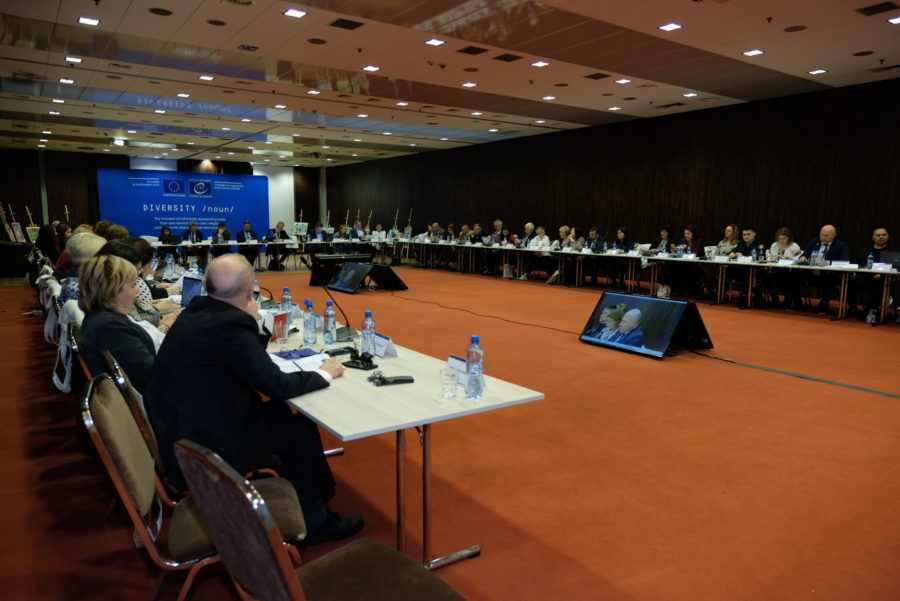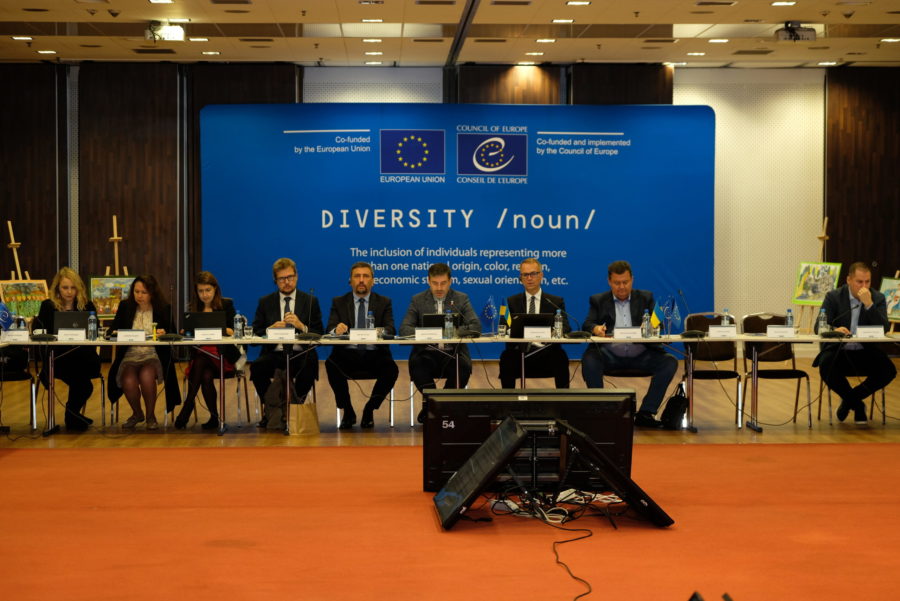Tetiana Pechonchyk calls for non-discrimination amendments in Ukrainian legislation in accordance with EU norms
On September 26, an event was held in Krakow ahead of the launch of the joint European Union and Council of Europe project “Support for implementing European standards relating to anti-discrimination and rights of national minorities in Ukraine”, which was attended by Head of ZMINA Tetiana Pechonchyk. During the event, she voiced the organization’s position on non-discrimination amendments that should be made to the Ukrainian legislation for the sake of EU integration and synchronization with European law.

During her speech, Pechonchyk noted that the national law of Ukraine needs significant amendments to take into account the minimum standards of the EU. In particular, it is necessary to expand the list of protected characteristics of discrimination:
“Despite the large and open list of protected characteristics, there is no mention of sexual orientation and gender identity in the legislation. These two signs were later added only to the Labor Code of Ukraine (2015) and the Law of Ukraine ‘On Population Employment’ (2022). The Law also lacks the signs ‘status of IDPs’, ‘HIV-positive status’, ‘health’. These five characteristics should be clearly spelled out in the basic anti-discrimination law. There is also a lack of mention of ‘multiple discrimination’, that is, on several grounds at the same time, and ‘discrimination by association’, when a person is discriminated against due to association with another person.”
In Ukrainian legislation, the expert says, there is no clear legal definition of the terms “enmity, intolerance or hatred” and the elements of certain crimes.
In the context of accountability for hate crimes, Pechonchyk continues, the state should introduce a separate punishment and the legislation should also provide for the possibility of investigating crime without a statement filed by victims.
“We believe that discrimination, unlike hate crimes, should not be punished with criminal liability, only civil and administrative. So these corrections should also be made to our legislation.”
The European Commission against Racism and Intolerance (ECRI) and the UN Committee on the Elimination of Racial Discrimination, as well as national and international NGOs, often draw attention to the fact that most hate crimes in Ukraine are not properly investigated precisely because of the imperfection of Ukrainian criminal legislation and the difficulty of proving a motive of intolerance or prejudice.

According to Pechonchyk, the Ukrainian authorities should include the motive of intolerance in crimes of genocide, crimes against humanity and war crimes.
“Some war crimes can also be hate crimes. If, for example, cases of hatred against Ukrainians are recorded under such legislation, it will help prove the crime of genocide,” the human rights activist is convinced.
To sum up, she noted that it is also important to involve national minority communities and take into account the rights of all groups vulnerable to discrimination in the recovery and post-war reconstruction program of Ukraine.
If you have found a spelling error, please, notify us by selecting that text and pressing Ctrl+Enter.















